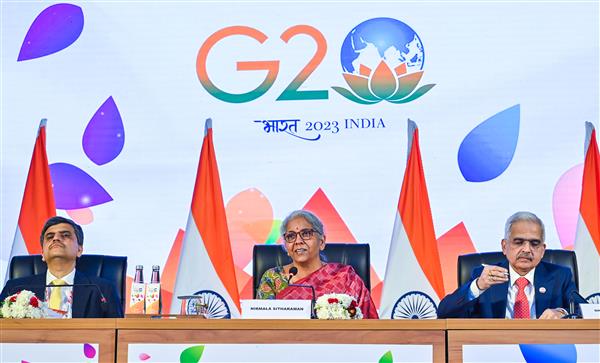G20 talks end in New Delhi without consensus on Ukraine war

New Delhi, The Gulf Observer: A meeting of top diplomats of the Group of 20 industrialized and developing nations ended Thursday in New Delhi without a consensus on the Ukraine war, India’s foreign minister said.
Subrahmanyam Jaishankar said there were “divergences” on the issue of war in Ukraine “which we could not reconcile as various parties held differing views.”
Last week, India was forced to issue a compromised chair’s summary at the conclusion of the G-20 finance ministers meeting after Russia and China objected to a joint communique that retained language on the war in Ukraine drawn directly from last year’s G-20 leaders summit declaration in Indonesia.
Host India had appealed for all members of the fractured Group of 20 to reach consensus on issues of deep concern to poorer countries even if the broader East-West split over Ukraine cannot be resolved.
Top diplomats from the world’s major industrialized and developing nations grappled Thursday with deepening rifts in their ranks as they held contentious talks dominated by Russia’s war in Ukraine and China’s moves to boost its global influence.
Host India appealed for all members of the fractured Group of 20 to reach consensus on issues of deep concern to poorer countries even if the broader East-West split over Ukraine cannot be resolved.
And while others, including U.S. Secretary of State Antony Blinken, chose to highlight their positive roles in addressing world crises, the divide was palpable.
In a video address to the assembled foreign ministers in New Delhi, Indian Prime Minister Narendra Modi urged them not to allow current tensions to destroy agreements that might be reached on food and energy security, climate change and debt.
“We are meeting at a time of deep global divisions,” Modi told the group, which included Blinken, Chinese Foreign Minister Qin Gang and their Russian counterpart Sergey Lavrov, whose discussions would naturally be “affected by the geopolitical tensions of the day.”
“We all have our positions and our perspectives on how these tensions should be resolved,” he said, adding that: “We should not allow issues that we cannot resolve together to come in the way of those we can.”


